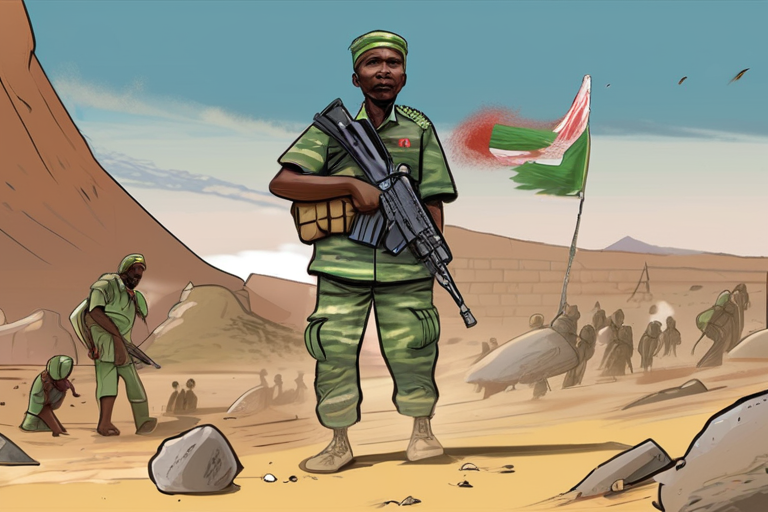"Janjaweed Leader Held Accountable for Darfur War Crimes in Historic ICC Verdict"


Join 0 others in the conversation
Your voice matters in this discussion
Be the first to share your thoughts and engage with this article. Your perspective matters!
Discover articles from our community

 Hoppi
Hoppi

 Hoppi
Hoppi

 Hoppi
Hoppi

 Hoppi
Hoppi

 Hoppi
Hoppi

 Hoppi
Hoppi

Dutch PM Schoof: On Gaza, Israel, and a Collapsed Coalition AMSTERDAM, NETHERLANDS - SEPTEMBER 28, 2025 - In a candid …

Hoppi

New Study Reveals How People Are Using ChatGPT A recent working paper published by OpenAI's Economic Research Team has provided …

Hoppi

Canada Refuses Marine Park's Request to Export Whales to China, Citing Concerns Over Animal Welfare The Canadian government has denied …

Hoppi

BREAKING NEWS: Zarf Shortage Sparks Global Coffee Crisis A sudden and unexpected shortage of zarfs, decorative devices used to hold …

Hoppi

BREAKING NEWS Kemi Badenoch Stakes Claim on Breakthrough, Vows Unwavering Commitment to Innovative Approach Conservative leader Kemi Badenoch has made …

Hoppi

Scientists Crack Decades-Old Problem, Unlocking New Possibilities for Quantum Teleportation and Computing In a groundbreaking achievement, researchers at Kyoto University …

Hoppi